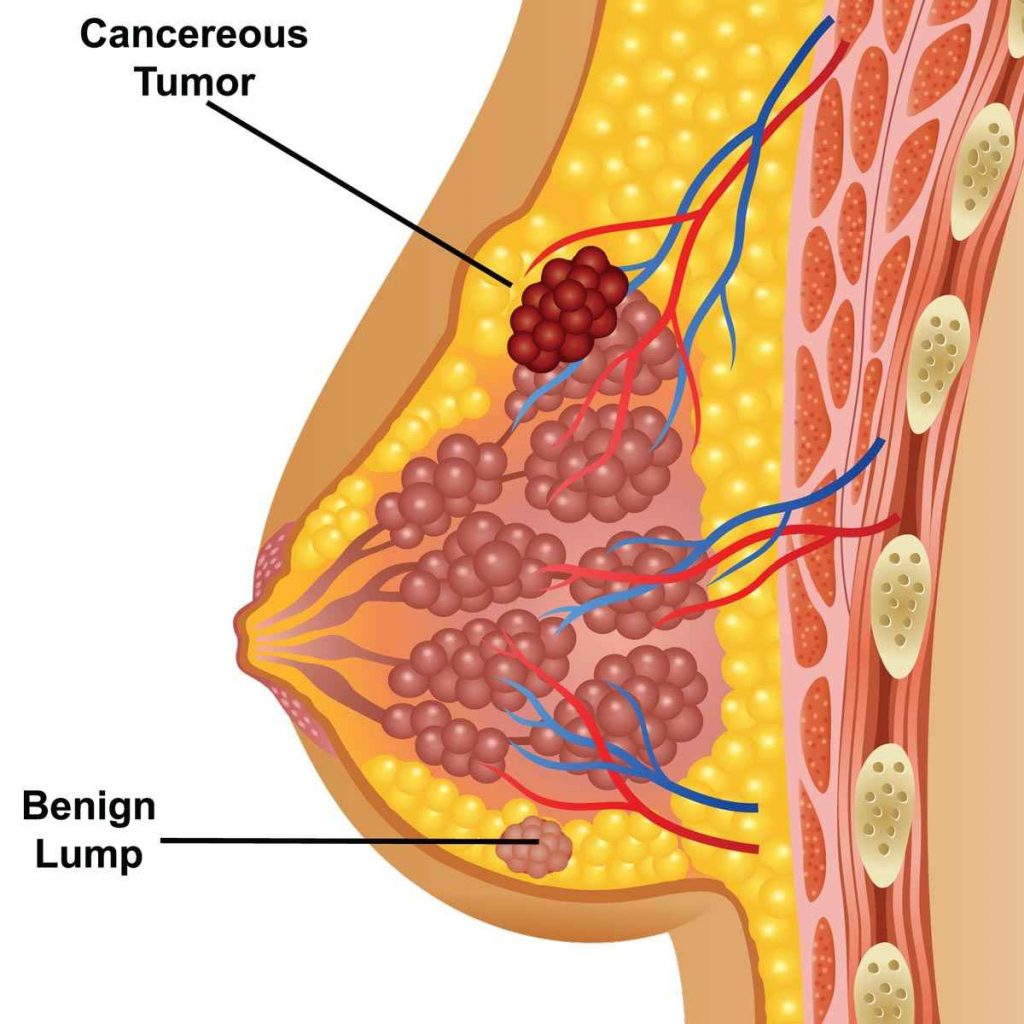Breast cancer remains one of the most challenging health issues, affecting millions of individuals worldwide. Despite significant strides in treatment over the past decades, the battle is far from over. Researchers and medical professionals continue to push the boundaries of what’s possible, leveraging cutting-edge science and innovative clinical trials to offer new hope. These advancements are not just reshaping the way we understand breast cancer but are paving the way for treatments that are more effective, personalized, and accessible.
Let’s explore the latest breakthroughs in breast cancer research and highlight some of the most promising clinical trials that are driving change.

Early Detection: Innovations in Screening Techniques
Early detection plays a crucial role in improving breast cancer outcomes. Clinical trials continuously evaluate new screening technologies and techniques to enhance accuracy and early diagnosis. For example, trials explore 3D mammography (tomosynthesis), which provides more precise and detailed images, reducing false positives and improving cancer detection rates. Additionally, researchers are investigating the potential of molecular breast imaging and contrast-enhanced mammography to enhance the sensitivity and specificity of screening, particularly in women with dense breast tissue.
Precision Medicine: Tailoring Treatment Approaches
Precision medicine has transformed cancer care by tailoring treatments to an individual’s unique genetic profile. In breast cancer, clinical trials focus on targeted therapies that address specific genetic alterations, such as HER2-positive or hormone receptor-positive subtypes. Trials evaluate new drugs and combination therapies that inhibit specific molecular pathways, leading to improved response rates and prolonged survival. Additionally, genomic profiling and liquid biopsies are used to identify genetic mutations and guide treatment decisions, enabling personalized approaches for breast cancer patients.
Immunotherapy: Boosting the Immune System
Immunotherapy has shown remarkable success in various cancer types, including breast cancer. Clinical trials are investigating immune checkpoint inhibitors, such as PD-1 and PD-L1 inhibitors, as well as adoptive cell therapies and cancer vaccines in breast cancer treatment. These trials aim to activate the patient’s immune system to recognize and attack cancer cells. Preliminary results have shown promising responses, particularly in patients with triple-negative breast cancer and those with tumours expressing specific biomarkers, paving the way for potential breakthroughs in immunotherapeutic approaches.
Targeted Therapies for Metastatic Breast Cancer
Metastatic breast cancer has spread to other body parts and presents significant treatment challenges. Clinical trials are evaluating novel targeted therapies for metastatic breast cancer, including drugs that inhibit specific pathways involved in tumour growth and metastasis. Trials are exploring targeted therapies combined with standard treatments, such as chemotherapy or hormonal therapy, to enhance response rates and prolong survival. These trials offer hope for improved outcomes and better disease management in patients with advanced breast cancer.
Promising Clinical Trials on the Horizon
1. Immunotherapy and Checkpoint Inhibitors
Immunotherapy, once primarily associated with treating melanoma and lung cancer, is now making waves in breast cancer care. Clinical trials are investigating the use of immune checkpoint inhibitors, which help the immune system recognize and fight cancer cells.
- Key Trial Example: Trials studying drugs like pembrolizumab (Keytruda) in combination with chemotherapy for triple-negative breast cancer (TNBC) have shown encouraging results. Early findings suggest improved survival rates for patients, offering a potential lifeline for those with this aggressive cancer subtype.
2. Targeted Therapies for HER2-Positive Breast Cancer
HER2-positive breast cancer, a subtype that once carried a grim prognosis, is now highly treatable thanks to targeted therapies. Clinical trials are exploring next-generation drugs to build on this success.
- Key Trial Example: Studies on drugs like tucatinib, an oral medication that targets the HER2 protein, have demonstrated remarkable efficacy when combined with existing therapies. Patients with advanced disease are living longer and experiencing fewer side effects, thanks to these innovations.
3. Gene Therapy and PARP Inhibitors
For patients with BRCA1 and BRCA2 mutations, gene therapy has become a game-changer. PARP inhibitors like olaparib are being studied in clinical trials for their ability to exploit weaknesses in cancer cells’ DNA repair mechanisms, effectively halting tumor growth.
- Key Trial Example: The OLYMPIA trial has shown that olaparib significantly reduces recurrence rates in high-risk patients, marking a major step forward for hereditary breast cancer management.
4. Hormone Therapy for ER-Positive Breast Cancer
Estrogen receptor-positive (ER-positive) breast cancers, which rely on hormones to grow, are being targeted in new ways through advanced hormonal therapies.
- Key Trial Example: Researchers are testing selective estrogen receptor degraders (SERDs) like elacestrant. These drugs work by degrading the estrogen receptor itself, a mechanism that could provide an option for patients whose cancers are resistant to existing treatments.
Advancements in Breast Cancer Research: Promising Clinical Trials Leading the Way
Breast cancer remains one of the most challenging health issues, affecting millions of individuals worldwide. Despite significant strides in treatment over the past decades, the battle is far from over. Researchers and medical professionals continue to push the boundaries of what’s possible, leveraging cutting-edge science and innovative clinical trials to offer new hope. These advancements are not just reshaping the way we understand breast cancer but are paving the way for treatments that are more effective, personalized, and accessible.
Let’s explore the latest breakthroughs in breast cancer research and highlight some of the most promising clinical trials that are driving change.
The State of Breast Cancer Research
Breast cancer research has entered an exciting era characterized by:
- Precision Medicine: Treatments tailored to the unique genetic and molecular profile of each patient’s cancer.
- Immunotherapy Innovations: Therapies that empower the body’s immune system to target and destroy cancer cells.
- Targeted Therapies: Drugs designed to attack specific proteins or genes that drive cancer growth, sparing healthy cells.
These advancements are the result of decades of effort by scientists and the critical role clinical trials play in translating laboratory discoveries into effective treatments.
Promising Clinical Trials on the Horizon
1. Immunotherapy and Checkpoint Inhibitors
Immunotherapy, once primarily associated with treating melanoma and lung cancer, is now making waves in breast cancer care. Clinical trials are investigating the use of immune checkpoint inhibitors, which help the immune system recognize and fight cancer cells.
- Key Trial Example: Trials studying drugs like pembrolizumab (Keytruda) in combination with chemotherapy for triple-negative breast cancer (TNBC) have shown encouraging results. Early findings suggest improved survival rates for patients, offering a potential lifeline for those with this aggressive cancer subtype.
2. Targeted Therapies for HER2-Positive Breast Cancer
HER2-positive breast cancer, a subtype that once carried a grim prognosis, is now highly treatable thanks to targeted therapies. Clinical trials are exploring next-generation drugs to build on this success.
- Key Trial Example: Studies on drugs like tucatinib, an oral medication that targets the HER2 protein, have demonstrated remarkable efficacy when combined with existing therapies. Patients with advanced disease are living longer and experiencing fewer side effects, thanks to these innovations.
3. Gene Therapy and PARP Inhibitors
For patients with BRCA1 and BRCA2 mutations, gene therapy has become a game-changer. PARP inhibitors like olaparib are being studied in clinical trials for their ability to exploit weaknesses in cancer cells’ DNA repair mechanisms, effectively halting tumor growth.
- Key Trial Example: The OLYMPIA trial has shown that olaparib significantly reduces recurrence rates in high-risk patients, marking a major step forward for hereditary breast cancer management.
4. Hormone Therapy for ER-Positive Breast Cancer
Estrogen receptor-positive (ER-positive) breast cancers, which rely on hormones to grow, are being targeted in new ways through advanced hormonal therapies.
- Key Trial Example: Researchers are testing selective estrogen receptor degraders (SERDs) like elacestrant. These drugs work by degrading the estrogen receptor itself, a mechanism that could provide an option for patients whose cancers are resistant to existing treatments.
Personalized Medicine: The Future of Breast Cancer Care
One of the most groundbreaking shifts in breast cancer treatment is the move toward personalized medicine. Clinical trials are increasingly focused on customizing treatment plans based on an individual’s genetic makeup, tumor characteristics, and even their microbiome. This approach not only improves outcomes but also reduces unnecessary side effects, ensuring patients receive treatments that truly benefit them.
For example:
- Liquid Biopsies: Trials are evaluating the use of liquid biopsies to detect circulating tumor DNA in the bloodstream. This innovation could allow for earlier detection and real-time monitoring of treatment response.
- Multi-Omics Analysis: By combining genomics, proteomics, and metabolomics, researchers are uncovering new insights into cancer progression and treatment resistance.
The Role of Patients in Driving Progress
Clinical trials are only possible because of the brave individuals who choose to participate. For patients with breast cancer, these trials offer access to cutting-edge treatments before they’re widely available. However, participation also accelerates the development of therapies that could benefit countless others in the future.
At Horizon Trial, we’re committed to making this process seamless. Our AI-powered platform connects patients with clinical trials tailored to their specific condition, ensuring they receive the most advanced care possible while contributing to life-saving research.
Advancing Breast Cancer Treatment and Care

The breakthroughs we’re seeing today wouldn’t be possible without clinical trials. These studies not only validate new treatments but also help refine existing ones, ensuring they work for as many people as possible. With the advent of advanced technologies like AI, researchers can now identify patterns and potential treatments faster than ever before, driving rapid progress in breast cancer care.
As breast cancer research continues to advance, the future looks brighter than ever. From immunotherapy and gene editing to precision medicine, clinical trials are unlocking solutions that were once thought impossible. At the heart of these breakthroughs are the patients, researchers, and organizations committed to changing the landscape of cancer care.
If you or a loved one is navigating a breast cancer diagnosis, consider exploring clinical trials as part of your treatment plan. At Horizon Trial, we’re here to help you find the most promising opportunities for care, guiding you every step of the way. Together, we can create a smarter, healthier future for all.

